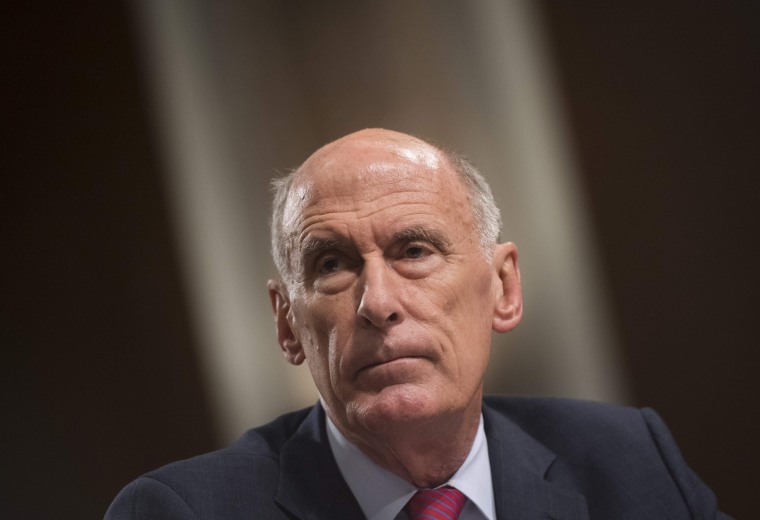There's been speculation for months about how much longer Dan Coats could continue to serve as the director of national intelligence. Now we know: the Indiana Republican will step down in a couple of weeks.
Donald Trump, who often failed to see eye to eye with Coats, announced via Twitter that he'll soon nominate far-right Rep. John Ratcliffe (R-Texas) to take the reigns as the nation's top intelligence official.
We'll take a closer look at the Texas congressman a little later this morning, but for now, there was something in the New York Times' report on this that stood out for me.
[I]n recent months, Mr. Coats discovered that even as he tried to stick to factual assessments of national security threats, it was difficult to align himself with the president.
It's a striking thing to see in print: the American who's responsible for overseeing the U.S. intelligence community wanted to say things that were true. He also wanted to say things in line with Trump's positions and agenda.
Coats struggled to do both -- which says more about his boss than the DNI.
As regular readers may recall, we can probably pinpoint the beginning of the end for the Trump-Coats relationship. Exactly one year ago last week, Coats appeared with NBC News' Andrea Mitchell for an interview at the Aspen Security Forum, and their chat became more newsworthy than many expected. As Rachel noted at the time, the DNI made headlines when he was caught completely off-guard by news, which broke during the interview, that his boss had invited Russian President Vladimir Putin to the White House for a visit.
At the same event, Coats expressed some concern about the American president siding with Putin over U.S. intelligence; Coats conceded he was opposed to Trump's insistence on a private one-on-one meeting between the two presidents; and he acknowledged that it wasn't a good idea for Trump to welcome two Russian officials into the Oval Office in 2017, at a meeting in which Trump leaked sensitive intelligence.
Soon after, the relationship between the two men got much worse.
Earlier this year, Coats released the annual "Worldwide Threat Assessment" report, at which point it seemed he and the president were serving in entirely different administrations. While Trump said Russia will no longer take steps to interfere in our elections, Coats concluded the opposite. While Trump said North Korea is "no longer a nuclear threat," Coats dramatically disagreed. While Trump boasted that his administration had "defeated" ISIS, Coats made clear that wasn't true.
The difference between Trump's assumptions and Coats' intelligence findings were similarly at odds on Iran, the southern border, and climate change.
It wasn't long before the president, true to form, began publicly mocking U.S. intelligence professionals, calling them "passive," "naïve," and in need of additional schooling. Trump suggested soon after that he lacked confidence in the information he received from his own handpicked intelligence chiefs, including Coats.
What the president wanted was someone who'd tell him how right his baseless assumptions were. Coats did not. The surprise isn't that he's stepping down; the surprise is that it took this long.
